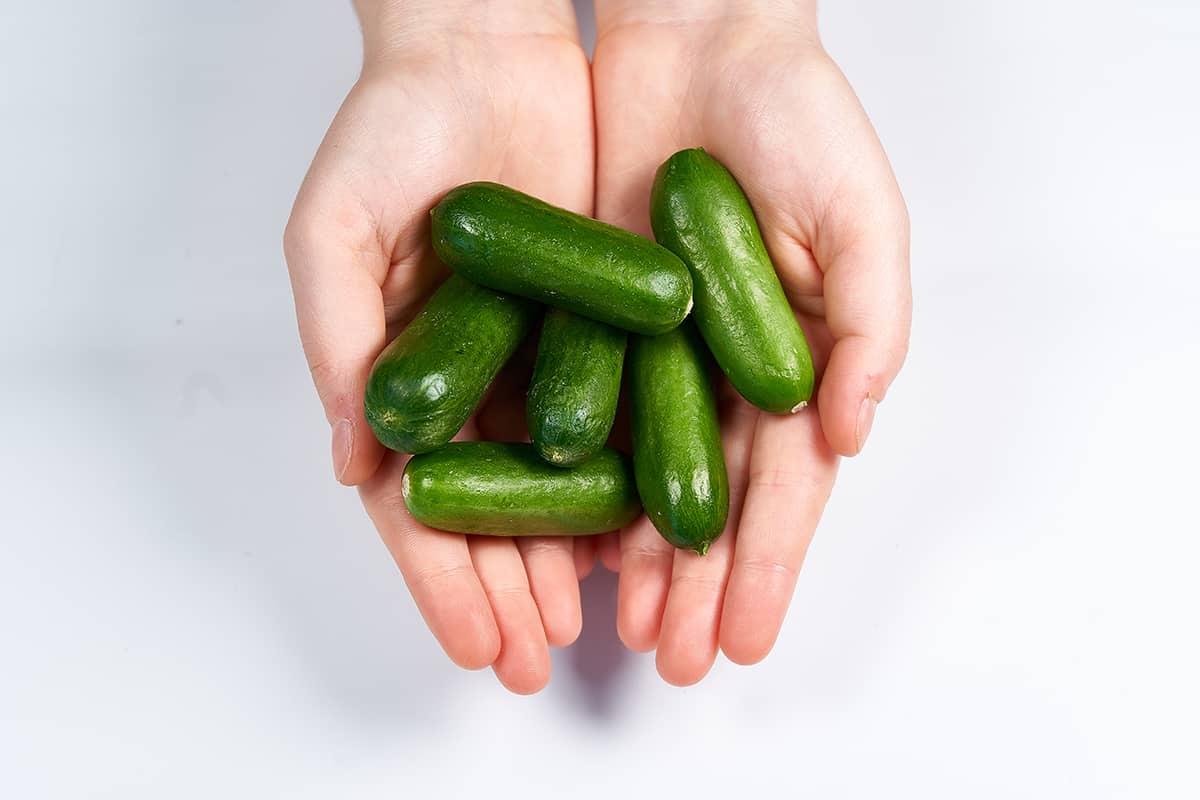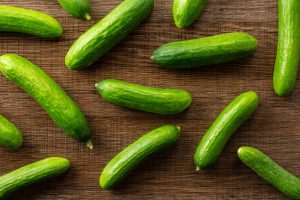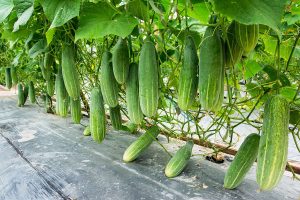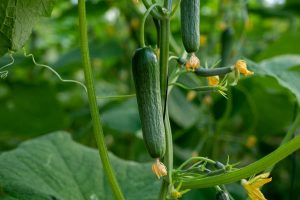Cucumbers are a type of fruit produced on annual vines, which are commonly used as culinary vegetables. There are over 120 different varieties of cucumber, which are cultivars of the Cucumis sativus plant in the Cucurbitaceae family.
Of these, several varieties produce small cucumbers, which are also known as snack cucumbers, mini cucumbers, and miniature cucumbers. Learn all about small cucumber varieties here.
Table of Contents
What are Small Cucumber Varieties?
Small cucumber varieties are cultivars of the cucumber plant, botanically known as Cucumis sativus. Many people mistakenly believe that miniature cucumbers are simply regular cucumbers picked earlier in the season. However, this is not the case.
Small cucumber varieties are distinct varieties of cucumber plants that produce miniature versions of cucumbers. They can come in a number of different shapes and colors and have subtle differences in taste.
Benefits of Small Cucumber Varieties
If you haven’t grown small cucumber varieties before, then you might be wondering what all the fuss is about. If you’re going to put effort into growing a cucumber plant, then you may as well be rewarded at the end of the process with large, full-size cucumbers, right?
Well, actually, mini cucumbers have a lot of great benefits, and in fact, many growers prefer growing these dinky fruits to their large relatives. Here we explore the many advantages of small cucumber varieties.
Compact growing space
Not everyone is fortunate to have an excess of growing space available to them for keeping plants, but small cucumber varieties don’t need much space at all, making them a more accessible plant to grow for almost anyone.
Mini cucumber varieties can have vines that only grow to a maximum size of 2 feet, which means these small plants can be kept on balconies, garden patios, or small greenhouses.
Even if you have a large garden, you might not want to commit a generous portion of it to grow full-size cucumbers, and in this case, a mini variety of cucumbers is a great solution so that you can still enjoy some fresh cucumbers right off the vine.
Snack size
Small cucumber varieties are, of course, small. They are often referred to as snack cucumbers or mini cucumbers because they are the perfect size for adding to a picnic, into a child’s lunchbox, or grabbing straight from the fruit bowl to enjoy in between meals.
You can treat small cucumbers just like apples or other single-portion fruits, simply picking them up and biting right into them without any preparation required. They are particularly great if you are someone who is often busy or short on time because you can throw them into some Tupperware to be enjoyed later in the day, as opposed to regular-sized cucumbers, which would need to be chopped up first.
More tender
Small varieties of cucumber are typically more tender, with a thinner skin which is generally more palatable among children. If you prefer a milder-tasting cucumber, then small cucumber varieties could be a good choice.
Varieties of Small Cucumbers
Piccolino cucumbers
The Cucumis sativus ‘Piccolino’ is a small variety of cucumber plants, producing fruits that measure around 4 inches in length at the time of harvest. This is a compact plant that will reach an eventual height of 9 inches, with a spread of around 18 inches, making it a great option for container growing on a balcony or in a greenhouse.
You will see Piccolino cucumbers beginning to form on your plant as early as just 45 days after planting the seed. The fruits are chunky enough to be sliced for salads, with a single cucumber being suitable for one meal without any leftovers.
This variety of small cucumbers has good resistance to disease, including downy mildew and powdery mildew. This is a prolific bloomer that can produce an abundance of fruits, with a harvesting period lasting for several weeks from midsummer until the end of summer.
Excelsior F1 cucumbers
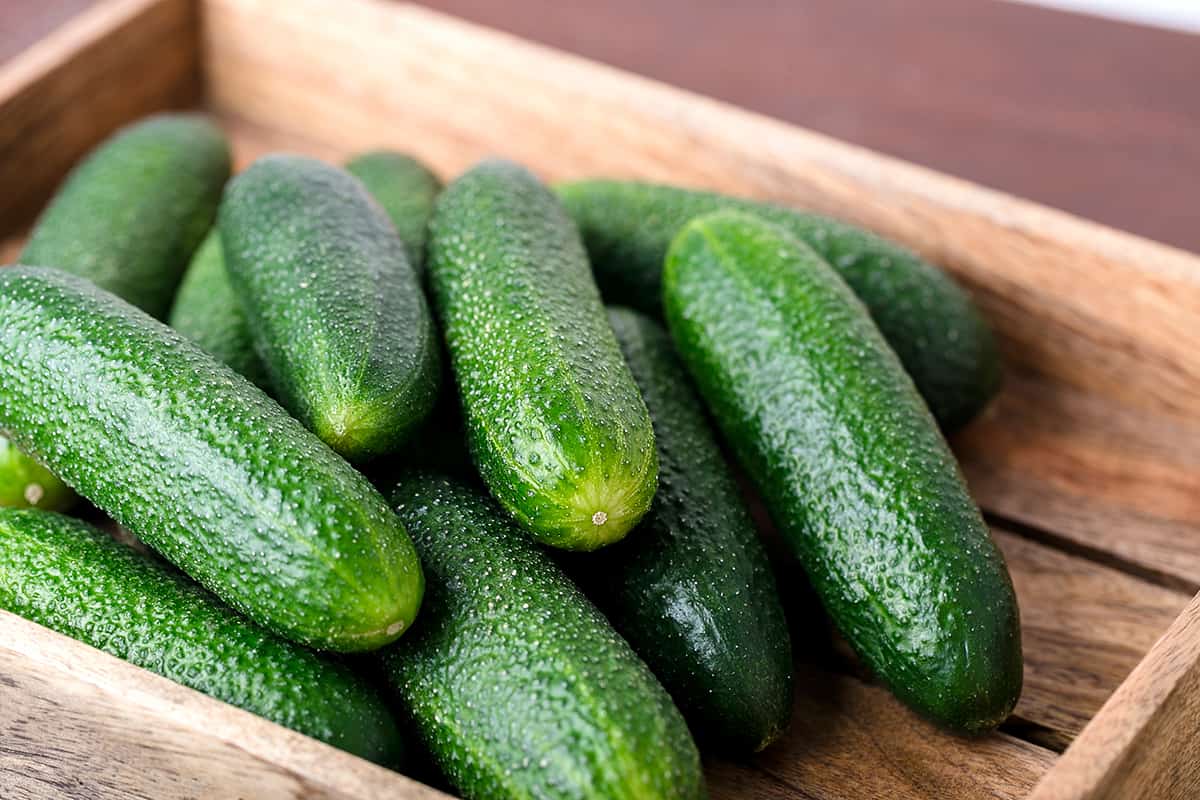
These small cucumbers grow on the Cucumis sativus ‘Excelsior F1’ plant. The fruits are dark green, around 4 inches in length at maximum size, and have a chunky look to them.
They are known for being ideal pickling cucumbers, also known as gherkins. These are a popular variety of miniature cucumbers, especially for commercial use, because they have a high resistance to target spot and scab.
Cornichon cucumbers
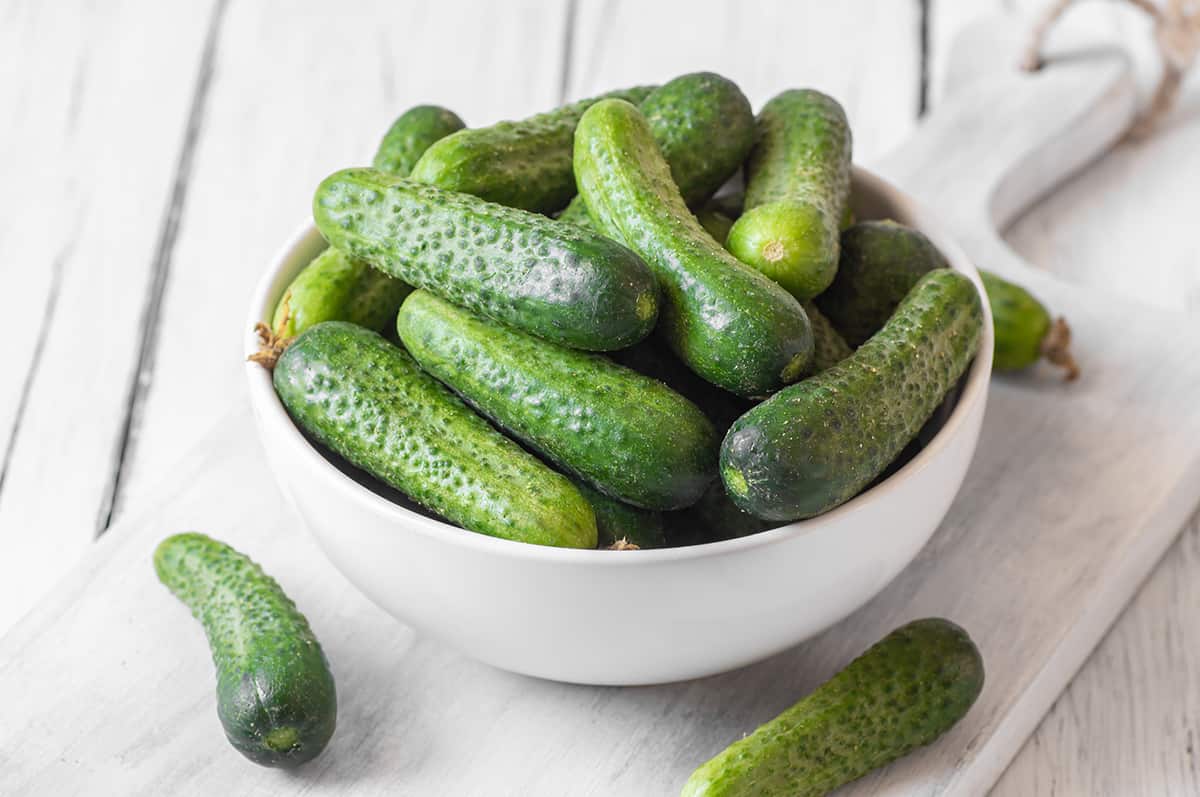
These small cucumber plants produce fruits that are exceptionally small, between 1 and 3 inches in length. They have rounded ends and are slightly curved, making them look like little horns. In fact, the name ‘Cornichon’ translates from French to mean ‘little horn’. These fruits are widely sold in France, both as fresh cucumbers and pickled in jars.
They have bumpy skin, which is a dark shade of green. Inside, the flesh is a very pale shade of green and is firm and juicy. They can be seedless or sometimes contain a small number of seeds, and they have a tart flavor with a crunchy consistency.
The plants are native to India, but they have been widely distributed across Europe and Africa for centuries. Since the 18th century, cornichons have been a staple in French cuisine.
Mini Munch cucumbers
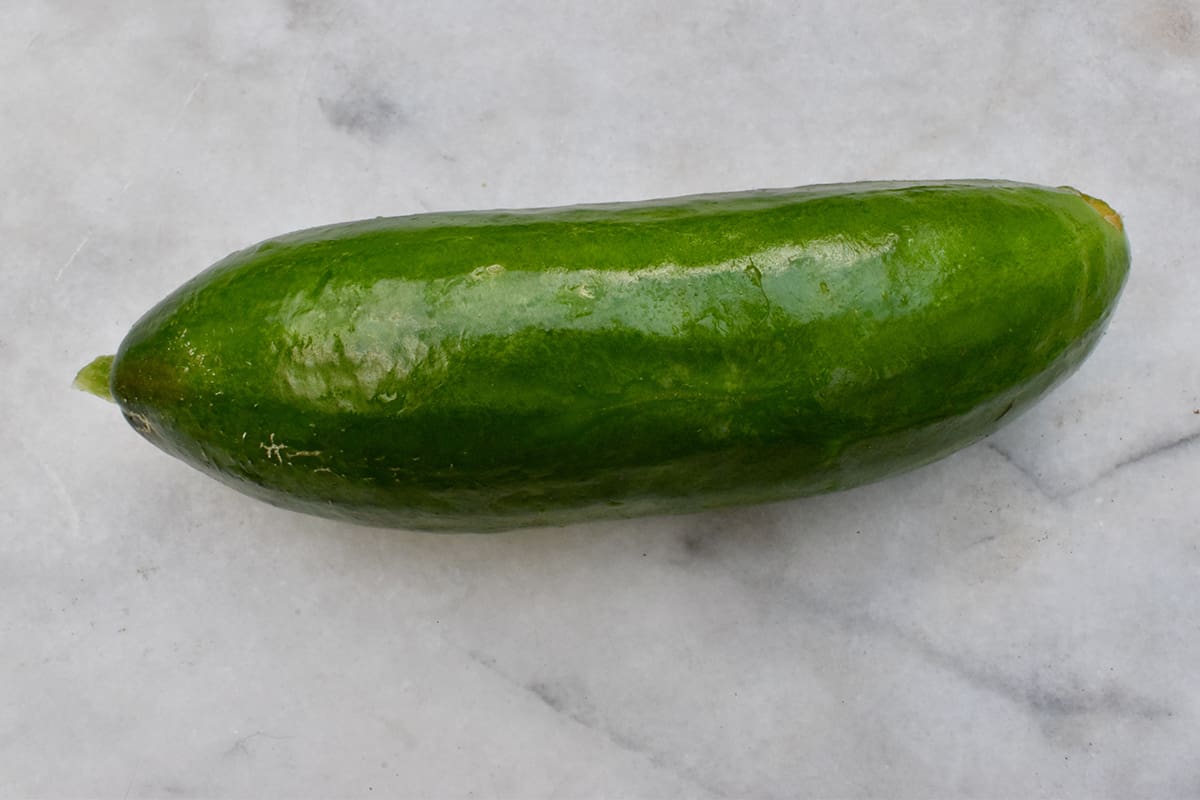
Mini Munch cucumbers are produced on the Cucumis sativus ‘Mini Munch’ plant. They are renowned for producing heavy crops of small, seedless cucumbers of under 3 inches in length. These are a popular variety of snacking cucumbers. The fruits have a crisp and crunchy texture and are ready to harvest from June right through to October.
The vines of this plant are vigorous and seemingly grow exponentially; however, the overall size of the plant is still relatively compact and suitable for growing in small spaces.
Miniature White cucumbers
Miniature White cucumbers are fruits that do not closely resemble the look of common cucumbers, but the flavor is very similar. These fruits have a rounded, oval shape and bumpy yellow skins. Inside, the flesh is a white-yellow color with a crisp texture. At the center of the fruit are rows of creamy-colored seeds, which are suspended in a jelly-like aqueous flesh, much like a honeydew melon.
Unlike most other varieties of white cucumber, the taste of the Miniature White cucumber is not bitter. The fruits can be eaten raw, and they also work well for pickling. These cucumbers are not produced on a mass commercial scale and instead are a specialty you might find at farmers’ markets or from home growers.
Lemon cucumbers
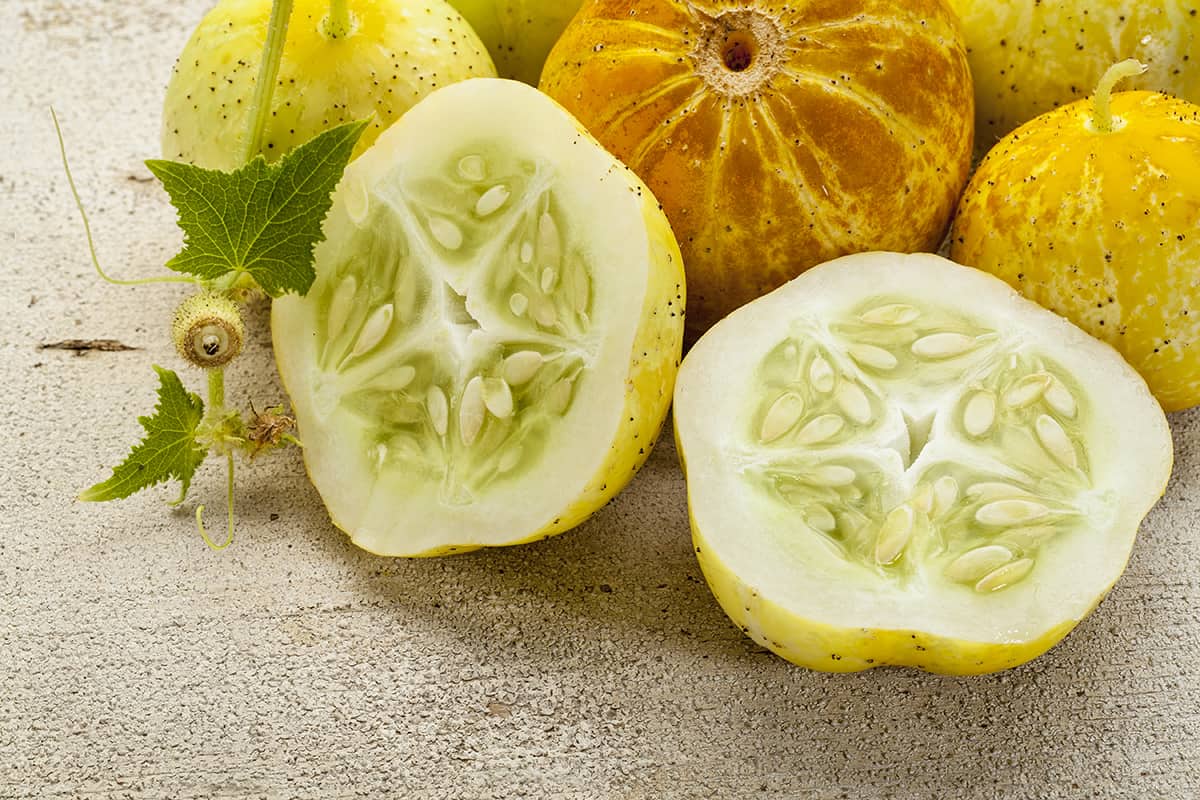
Lemon cucumbers are a small variety of cucumbers that are so-called because of their visual resemblance to lemons. These cucumbers are spherical shaped, with a slightly protruding lump at one end. As the fruit ripens, the skin develops from a white-yellow color to a more golden-yellow shade.
The skin is often mottled and can be bristled. The bristles are edible, but they can be easily removed prior to consumption or for aesthetic appeal. Inside, the flesh of Lemon cucumbers is white, pale green, or pale yellow, and it is seeded. They are mild in flavor and have a cool, crisp texture that you would associate with cucumbers.
Lemon cucumbers are said to be native to the Middle East or India. They were introduced to the United States as late as the 20th century and can be found at local farmers’ markets or specialty stores. They are good for pickling, but their interesting color also makes them a great choice for salads or as a garnish in cocktails.
Spacemaster cucumbers
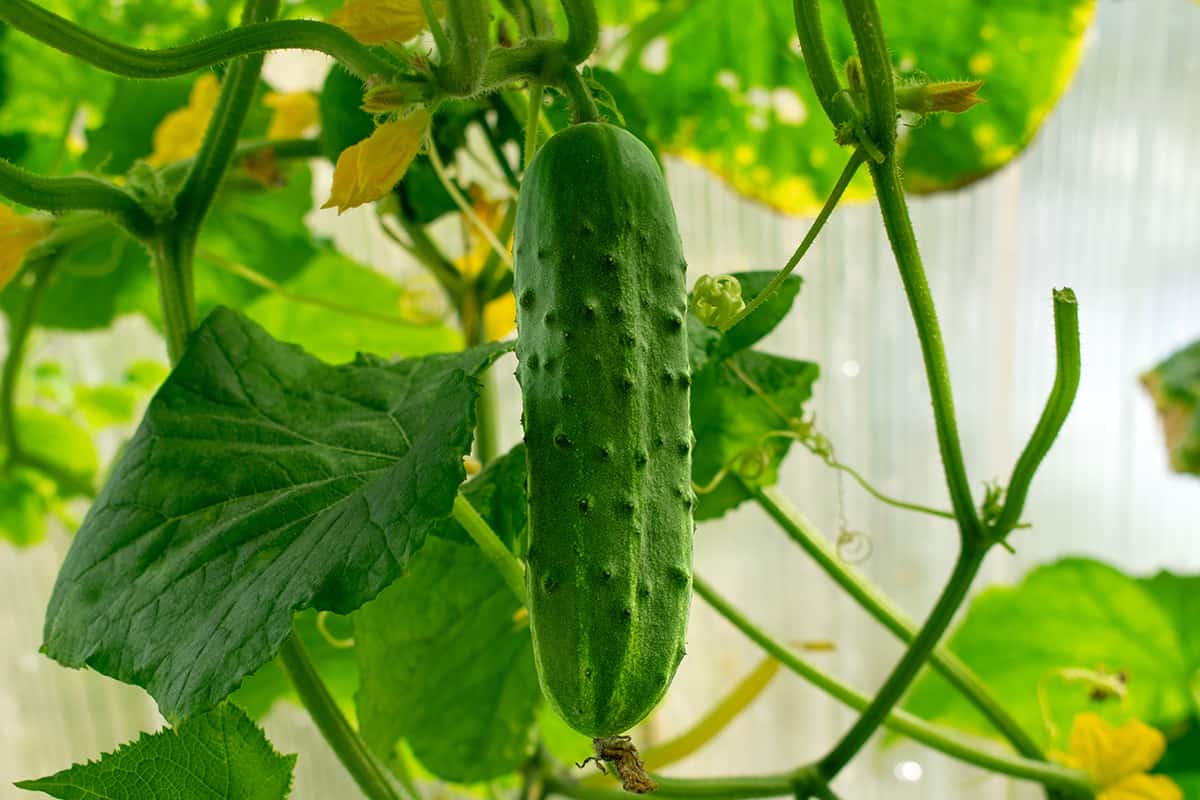
Spacemaster cucumber plants are very compact, though the fruits they produce are not the smallest of the small cucumber varieties. These plants reach a mature height of around 18 inches, with the fruits themselves being up to 8 inches in length.
These plants grow quickly, with fruits that are suitable for harvesting from 56 days after germination.
Uses for Small Cucumbers
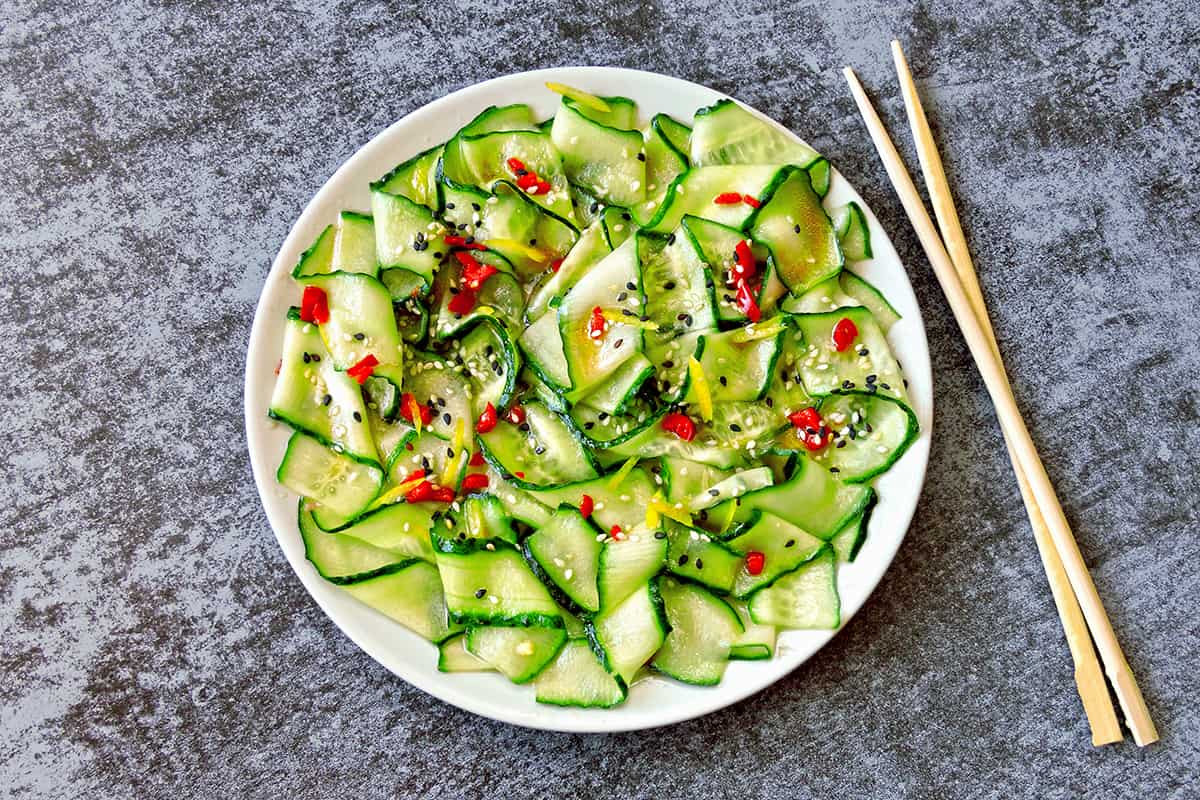
In grocery stores, small cucumber varieties are typically marketed as snacks for children. Their size and shape make them ideal for small hands to hold, and they tend to be more tender than regular cucumbers, which can make them more popular with kids.
However, there are many more uses for small cucumbers than as snacks for little ones.
If you have been growing a small cucumber plant, then you will probably be inundated with an excess of these cute fruits. Small cucumber varieties tend to be prolific fruiters, resulting in an abundant harvest. If you are looking for some new and different ways to use up your bounty of mini cucumbers, consider these options.
Snacking
The most common use for small cucumber varieties is for snacking. Since mini cucumbers do not require any preparation, you can eat them straight out of the fruit bowl for a snack in between meals.
They are also great for adding to lunch boxes to be enjoyed later at work or in a child’s school lunch box. Throw a handful of snack-sized cucumbers into a Tupperware to take on a picnic as a healthier alternative to candy or potato chips.
Salads
Small cucumbers are great for using in salads because one whole small cucumber is the perfect size for chopping up into a salad without any leftovers.
With full-sized cucumbers, you will usually have leftover cucumber after preparing a salad, and these can go mushy in the refrigerator after they have been opened. With mini cucumbers, this is not a problem, and any unused cucumbers will remain fresh for longer.
Cocktail garnish
Mini cucumbers are undeniably cute, which makes them an appealing garnish for cocktails. You can use a knife to make a slice into a mini cucumber and wedge it onto the rim of a glass or use a cocktail stick through the middle of the cucumber. The flavor of cucumbers is fresh and summery, making them a nice addition to cocktails that have mint or lemon components.
Pickling
Small cucumber varieties are popular for pickling because their miniature size means they are perfect for storing in glass jars. There are a huge amount of recipes available for pickling cucumbers, which usually involve vinegar as the main liquid ingredient, along with various herbs and spices to flavor the cucumber.
Pickling the cucumbers preserves them, so this is a good way to make a large harvest of cucumbers last longer. They can be stored in your pantry for use at a later date, either for snacking or adding to salads or pasta dishes.
Smoothies
Cucumbers can be added to smoothie recipes for increased nutritional value and to help with texture and consistency. Rather than having to chop up a full-sized cucumber in the morning when you are preparing your smoothie, small cucumber varieties are a handy option that you can just pull straight out of the refrigerator and throw into your blender.
Once again, this means that there is no waste returning to the refrigerator, which could go unused or turn mushy.
Sorbets
The fresh and crisp flavor of cucumber makes it a deliciously refreshing summertime treat. Use small cucumbers to make sorbets and other frozen snacks for a thoroughly invigorating taste on hot summer days.
Salsa
Small cucumbers work well in salsa recipes because these typically only call for a small amount of the fruit. By choosing a small cucumber over a full-sized cucumber, you will have less waste when making a portion of salsa. If you want to add more interesting colors to a salsa, opt for a specialty variety of cucumber, such as Lemon cucumber.
Drinks
A wide number of fruits can be added to fruit punches to make them more flavorful and filling. Fruits commonly used are strawberries, raspberries, blackberries, blueberries, apples, oranges, and grapes.
Cucumber is a fun ingredient to add, which will bring a refreshing, crisp taste to fruit punch, and it’s a great way to add more color to the drink. The small size of these cucumbers makes them easy to dice, and they will also add a cute aesthetic to the fruit punch.
